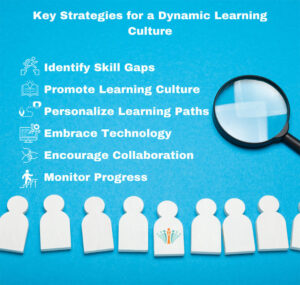In the ever-evolving landscape of the modern workplace, the need for continuous skill development has become paramount for businesses aiming to stay ahead of the curve. Up-skilling and re-skilling initiatives have emerged as vital components in nurturing a versatile and adaptable workforce. By implementing effective strategies, organizations can foster a culture of continuous learning, empowering employees to embrace change and drive innovation.

Identifying Skill Gaps and Future Needs
It is crucial for businesses to conduct comprehensive assessments to identify existing skill gaps and anticipate future industry demands. This proactive approach allows organizations to prepare their workforce for upcoming challenges and opportunities.
Fostering a Learning Culture
Encouraging a culture of learning and development nurtures employee engagement and commitment to personal growth. By emphasizing the value of continual learning, organizations can inspire their workforce to proactively seek opportunities for professional development.
Personalized Learning Paths
Tailoring learning paths to individual employee needs and career aspirations is key to fostering a dynamic and engaged workforce. Providing diverse learning opportunities through workshops, online courses, and mentorship programs can effectively cater to various learning styles and skill levels.
Embracing Technology-Driven Solutions
Leveraging technology-driven learning solutions, such as virtual simulations and interactive online platforms, can make the up-skilling and re-skilling process more engaging and accessible for employees.
Encouraging Collaboration
Promoting cross-functional collaboration and knowledge sharing among employees facilitates a holistic understanding of various roles within the organization. Encouraging collaboration on projects can broaden employees’ skill sets and promote a culture of collective learning.
Continuous Evaluation and Adaptation
Regularly evaluating the progress of up-skilling and re-skilling initiatives is essential for ensuring their effectiveness. This evaluation process allows organizations to make necessary adjustments and align their strategies with evolving market trends and industry demands.
By implementing these strategies, organizations can empower their workforce to adapt to changing market dynamics, drive innovation, and contribute to the long-term success of the business. Cultivating a culture of learning not only enhances employee satisfaction but also positions companies at the forefront of their respective industries, ready to tackle any challenge that comes their way.


